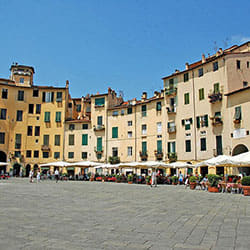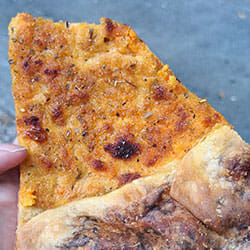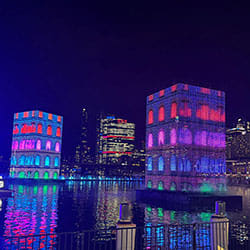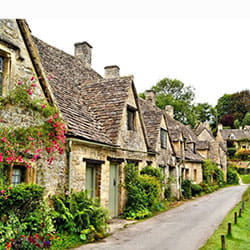Meanwhile, those of us who live overseas are keenly aware of how gentle Japanese water is. Europe and the US have hard water, and are forced to find ways to deal with this fact in everything from drinking water to laundry. The tap water in Italy is full of chlorine. Once when I was walking behind an old woman with legs so round her ankles had disappeared, and the person I was with threatened that if I kept drinking the tap water my legs would end up the same way. I wonder if it’s really true…

Differences in water quality lead to differences in water-related products. Take liquid body soap, for example. Because soap doesn’t foam up very well in hard water, calcium deposits are left behind on the skin, making it feel stiff. For this reason, many body soap products contain oils so that the skin feels gentle to the touch when you get out of the bath. If you use them in the soft water in Japan, you’ll apparently end up with a slimy feeling that isn’t refreshing no matter how much you rinse. Just keep that in mind if you plan on taking some liquid body soap back to Japan as a souvenir.

My hair has also gotten stiff thanks to the hard water in Europe and the US. I get that my Japanese hair is thicker and tougher than the soft, curly hair of Westerners, but when I go to salons in Milan to get it cut, they joke about how it’s so tough that it breaks their scissors. It certainly makes a terrible noise while they’re cutting it. I do explain, albeit futilely, that my hair gets soft when I wash it in Japanese water.
The most irritating thing about hard-water countries in daily life is probably laundry. When it comes to drinking water, carbonated water goes perfectly with Italian food, so people love drinking carbonated bottled water here, and water purifiers work really well on the hard water from the tap. In any case, bottled mineral water is really popular in Milan, so there’s probably no danger that I’m going to drink too much chlorinated tap water and end up with legs like that old lady.
But when it comes to laundry, it’s just one problem after another. The worst example is the virtually inevitable fact that your white clothes will turn dingy grey. Soft clothes will get stiff, delicate items will lose their shape, and colored pieces will fade. For us Japanese—clean freaks who love to do laundry—doing laundry in the West is a disaster. I still fail at it repeatedly.
If you do laundry in Italy, you’ve got to pay attention to a lot of different things. Particularly the sheer number of detergents. There’s detergent for black loads, detergent for white loads, detergent for colored loads, powerful antimicrobial detergents, fabric softeners, laundry scents, sheets that absorb color runoff, bleach… the supermarkets sell all kinds of detergents and auxiliary products, and when it comes to the size of the bottles, they’re all enormous and clearly meant for large families.

Washing machines also have all kinds of settings, and the thing you’ve got to be most careful about is the temperature. If you somehow manage to wash a load at high temperature in hard water, your whites will all end up dingy gray and never be white again.
I miss Japanese water (?!) so much…






























































